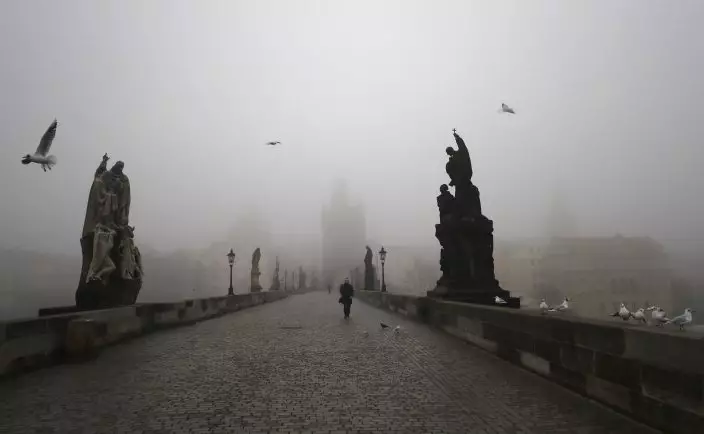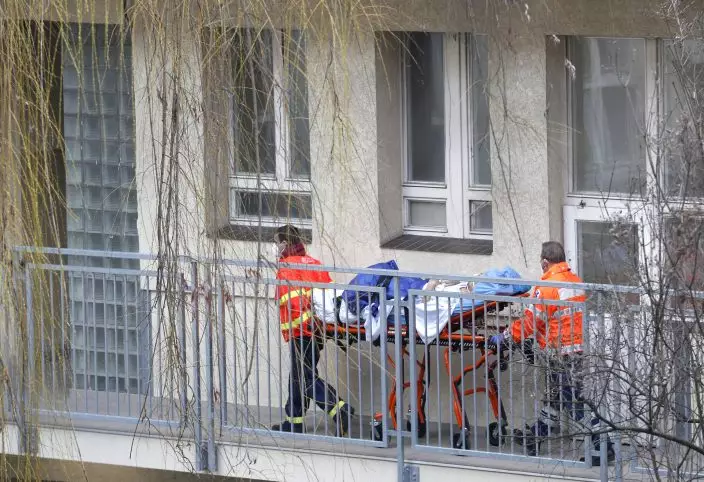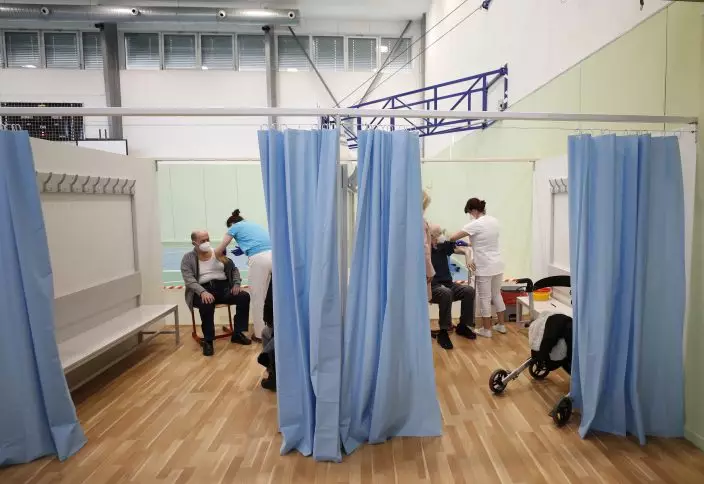The Czech government is ordering medical and other university and high school students to help out at hospitals struggling to cope the record numbers of COVID-19 patients, the country's health minister said on Friday, as the country faces a new spike in infections.
Health Minister Jan Blatny warned that hospitals across the country are under “extreme pressure” amid an infection surge that he attributed to a highly contagious coronavirus variant.
“The more infectious variant of the coronavirus, the British one, has been spreading across all our regions and has become dominant in the Czech Republic,” Blatny said.

A man walks across the medieval Charles Bridge in Prague, Czech Republic, Wednesday, Feb. 24, 2021. The Czech government has decided to further tighten restrictive measures amid a surge of a highly contagious coronavirus variant in one of the hardest-hit European Union's nations. At the same time, the worsening situation has forced the Cabinet to abandon for now its plans to reopen all stores. (AP PhotoPetr David Josek)
Blatny said students will get to work at hospitals on Monday.
He said the situation will remain difficult as 600-700 daily hospital admissions are expected over the next 10 days.
Daily confirmed COVID-19 cases reached 14,554 on Thursday with 8,153 COVID-19 patients needing hospitalization - some 300 cases shy of Tuesday's record. Of those patients hospitalized 1,735 were in intensive care - eight less than a record set a few days ago.

Healthcare workers move a patient at the infectious ward of the Bulovka hospital in Prague, Czech Republic, Wednesday, Feb. 24, 2021. The Czech prime minister Andrej Babis said the pandemic situation in one of the hardest-hit country in the European Union, is "extremely serious" and his government will have to impose more restrictive measures to slow down the spread of the coronavirus. (AP PhotoPetr David Josek)
Individual hospitals, especially in the Czech Republic's western region near the German border and the central part of the country around Prague, have been already overwhelmed, transferring some patients to clinics elsewhere in the country.
“Staff are terribly tired,” Petr Hubacek, the director of a regional hospital in Domazlice told Czech public television. “It’s more about mental exhaustion than physical fatigue.”
The country has activated a plan for dozens of Czech patients to be treated in Germany, Poland and Switzerland. The three countries were among those that have offered help. The Czech Health Minister said no one had been transferred abroad as of Friday.

Elderly men receive Moderna COVID-19 vaccine at a sports hall in Ricany, Czech Republic, Friday, Feb. 26, 2021. With new infections soaring due to a highly contagious coronavirus variant and hospitals filling up, one of the hardest-hit countries in the European Union is facing inevitable: a tighter lockdown. (AP PhotoPetr David Josek)
The Czech Republic has by far the biggest 14-day infection rate per 100,000 inhabitants in the EU, according to the European Centre for Disease Prevention and Control.
The government also ordered on Friday mandatory mass testing of state employees. It follows the same order for private companies issued earlier this week. Prime Minister Andrej Babis appealed to private company owners to encourage their employees to work from home whenever possible.
The nation of 10.7 million has 1.3 million confirmed cases with 21,325 deaths.
Follow all of AP’s pandemic coverage at:
https://apnews.com/hub/coronavirus-pandemic
https://apnews.com/hub/coronavirus-vaccine
https://apnews.com/UnderstandingtheOutbreak


